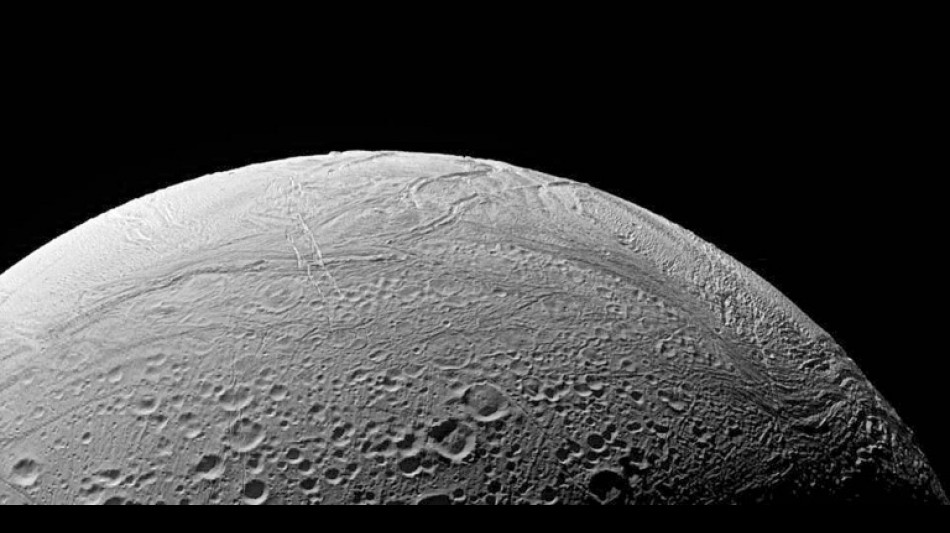
-
 15 states sue Trump administration over child vaccine policy
15 states sue Trump administration over child vaccine policy
-
Rescuers search for missing after deluge kills 30 in Brazil
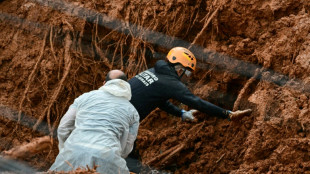
-
 Newcastle complete cruise into Champions League last 16
Newcastle complete cruise into Champions League last 16
-
Leverkusen through to Champions League last 16 after Olympiacos draw

-
 Bodo/Glimt sink Inter to continue Champions League fairy tale
Bodo/Glimt sink Inter to continue Champions League fairy tale
-
Tech shares rebound as markets weigh AI impacts

-
 Puerto Vallarta: the Mexican paradise in flames over the killing of 'El Mencho'
Puerto Vallarta: the Mexican paradise in flames over the killing of 'El Mencho'
-
Sorloth treble helps Atletico past Brugge into Champions League last 16

-
 Louvre president hands in resignation to Macron: Elysee
Louvre president hands in resignation to Macron: Elysee
-
Iran says deal 'within reach' ahead of US talks

-
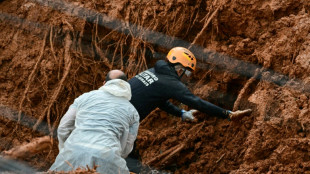 Torrential rains leave 25 dead in Brazil, dozens missing
Torrential rains leave 25 dead in Brazil, dozens missing
-
Northeast US faces power cuts and school closures after snowstorm

-
 US abstains in UN vote voicing support for Ukraine
US abstains in UN vote voicing support for Ukraine
-
Lebanon fears Israeli strikes if Iran situation escalates

-
 Trump seeks to strike back in crucial State of the Union
Trump seeks to strike back in crucial State of the Union
-
World-class Brook played 'the best innings of his life' - Afridi

-
 US appeals WTO ruling in dispute by China over clean energy subsidies
US appeals WTO ruling in dispute by China over clean energy subsidies
-
Guadalajara: World Cup host city rocked by narco violence
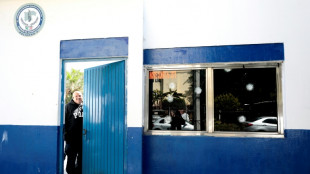
-
 Briiliant Brook 100 puts England into T20 World Cup semi-finals
Briiliant Brook 100 puts England into T20 World Cup semi-finals
-
Germany's Merz heads to China for talks centred on trade

-
 Briiliant Brook 100 puts England into T20 World Cups semi-finals
Briiliant Brook 100 puts England into T20 World Cups semi-finals
-
Warner Bros. 'reviewing' new takeover bid from Paramount

-
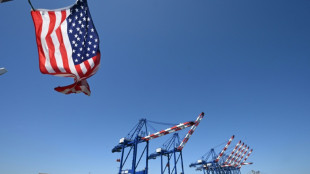 US told EU it 'stands' by tariff deal: trade chief
US told EU it 'stands' by tariff deal: trade chief
-
Torrential rains leave 23 dead in Brazil, dozens missing

-
 UK govt says will release files on 'rude' ex-prince Andrew
UK govt says will release files on 'rude' ex-prince Andrew
-
Nearly an own gull! CPR performed on bird at Turkey football match
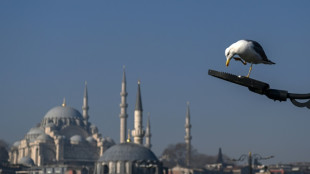
-
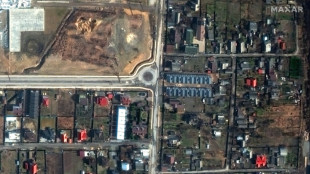 How AFP has used data analysis to cover the Ukraine war
How AFP has used data analysis to cover the Ukraine war
-
Paris says US envoy pledges not to 'interfere' in France affairs

-
 Iran says students must respect 'red lines' after protests
Iran says students must respect 'red lines' after protests
-
Italian biathlete Giacomel has heart surgery after Olympic withdrawal

-
 Gazans salvage ancient books in mosque library damaged by war
Gazans salvage ancient books in mosque library damaged by war
-
Farhan scores 63 as England restrict Pakistan to 164-9

-
 Stocks bounce as traders assess AI fallout, tariffs
Stocks bounce as traders assess AI fallout, tariffs
-
Brazil court tries politicians over hit on Black councilwoman

-
 Senegal PM vows to double penalty for same-sex relations
Senegal PM vows to double penalty for same-sex relations
-
UK govt backs releasing documents tied to 'rude' ex-prince Andrew

-
 Novo Nordisk to slash prices of weightloss drugs in US
Novo Nordisk to slash prices of weightloss drugs in US
-
Welllage says Sri Lanka can rescue T20 World Cup campaign

-
 UK's royal protection officers urged to speak up in Epstein probe
UK's royal protection officers urged to speak up in Epstein probe
-
Aid groups petition Israel's top court to halt ban on Gaza, West Bank ops

-
 UEFA can make fight against racism more than a slogan: Real Madrid's Arbeloa
UEFA can make fight against racism more than a slogan: Real Madrid's Arbeloa
-
Bali flooding prompts tourist evacuation: official
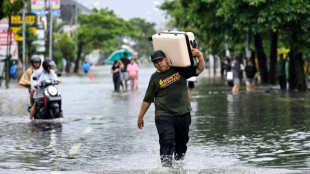
-
 Jones says Borthwick's 'title-decider' comments behind England collapse
Jones says Borthwick's 'title-decider' comments behind England collapse
-
UK fines Reddit nearly $20 mn over children's data failures

-
 PSG star Hakimi faces trial for alleged rape
PSG star Hakimi faces trial for alleged rape
-
Netflix, Prime and Disney+ face UK broadcasting regulation

-
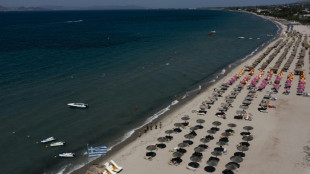 Greece set new tourism record in 2025
Greece set new tourism record in 2025
-
Zelensky says Ukraine unbroken after 4 years, but Russia vows to fight on
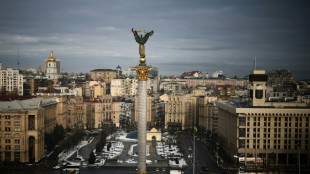
-
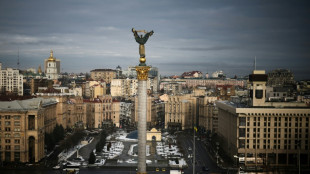 Zelenksy says Ukraine unbroken after 4 years, but Russia vows to fight on
Zelenksy says Ukraine unbroken after 4 years, but Russia vows to fight on
-
Snoop Dogg 'can't wait' for first Swansea visit


More ingredients for life discovered in ocean on Saturn moon
The ocean hidden under the icy shell of Saturn's moon Enceladus harbours complex organic molecules, a study said Wednesday, offering further evidence that the small world could have all the right ingredients to host extraterrestrial life.
Just 500 kilometres (310 miles) wide and invisible to the naked eye, the white, scar-covered Enceladus is one of hundreds of moons orbiting the sixth planet from the Sun.
For a long time, scientists believed Enceladus was too far away from the Sun -- and therefore too cold -- to be habitable.
Then the Cassini space probe flew past the moon several times during a 2004-2017 trip to Saturn and its rings, discovering evidence that a vast saltwater ocean is concealed under the moon's kilometres-thick layer of ice.
Since then, scientists have been sifting through the data collected by Cassini, revealing that the ocean has many of the elements thought to be needed to host life, including salt, methane, carbon dioxide and phosphorus.
When the spacecraft passed over the moon's south pole, it discovered jets of water bursting through cracks on the surface.
These jets were propelling tiny ice particles -- smaller than grains of sand -- into space. While some of these ice grains fell back to the moon's surface, others collected around one of Saturn's many rings.
When Cassini flew through Saturn's outermost "E" ring, it was "detecting samples from Enceladus all the time," Nozair Khawaja, a planetary scientist at the Free University of Berlin and lead author of the new study, said in a statement from the European Space agency.
By looking through these samples, scientists had previously identified numerous organic molecules -- including the precursors of amino acids, which are fundamental building blocks of life.
But these ice grains could have been altered after being trapped in the ring for hundreds of years -- or beaten up by blasts of cosmic radiation.
So the scientists wanted to look at some fresh ice grains.
Luckily, they already had access to some.
When Cassini flew directly into the spray spewing from the moon's surface in 2008, grains of ice hit the spacecraft's Cosmic Dust Analyzer at around 18 kilometres a second.
But it took years to complete a detailed chemical analysis of these particles, which was the subject of the study published in the journal Nature Astronomy.
- Back to the moon? -
Study co-author Frank Postberg said the research proves that "the complex organic molecules Cassini detected in Saturn's E ring are not just a product of long exposure to space, but are readily available in Enceladus's ocean".
French astrochemist Caroline Freissinet, who was not involved in the study, told AFP that there was "not much doubt" that these molecules were in the moon's ocean.
But this confirmation provides "another piece in the puzzle," she added.
It also shows that recent technology such as artificial intelligence allows scientists to perform new kinds of analysis on old data, she said.
But to get the best idea about what is happening on Enceladus, a mission would need to land near the icy geysers and collect samples, she added.
The European Space Agency has been studying the potential of a mission that would do just that.
After all, "Enceladus ticks all the boxes to be a habitable environment that could support life," the agency said in the statement.
Khawaja added that "even not finding life on Enceladus would be a huge discovery, because it raises serious questions about why life is not present in such an environment when the right conditions are there."
M.Fischer--AMWN



